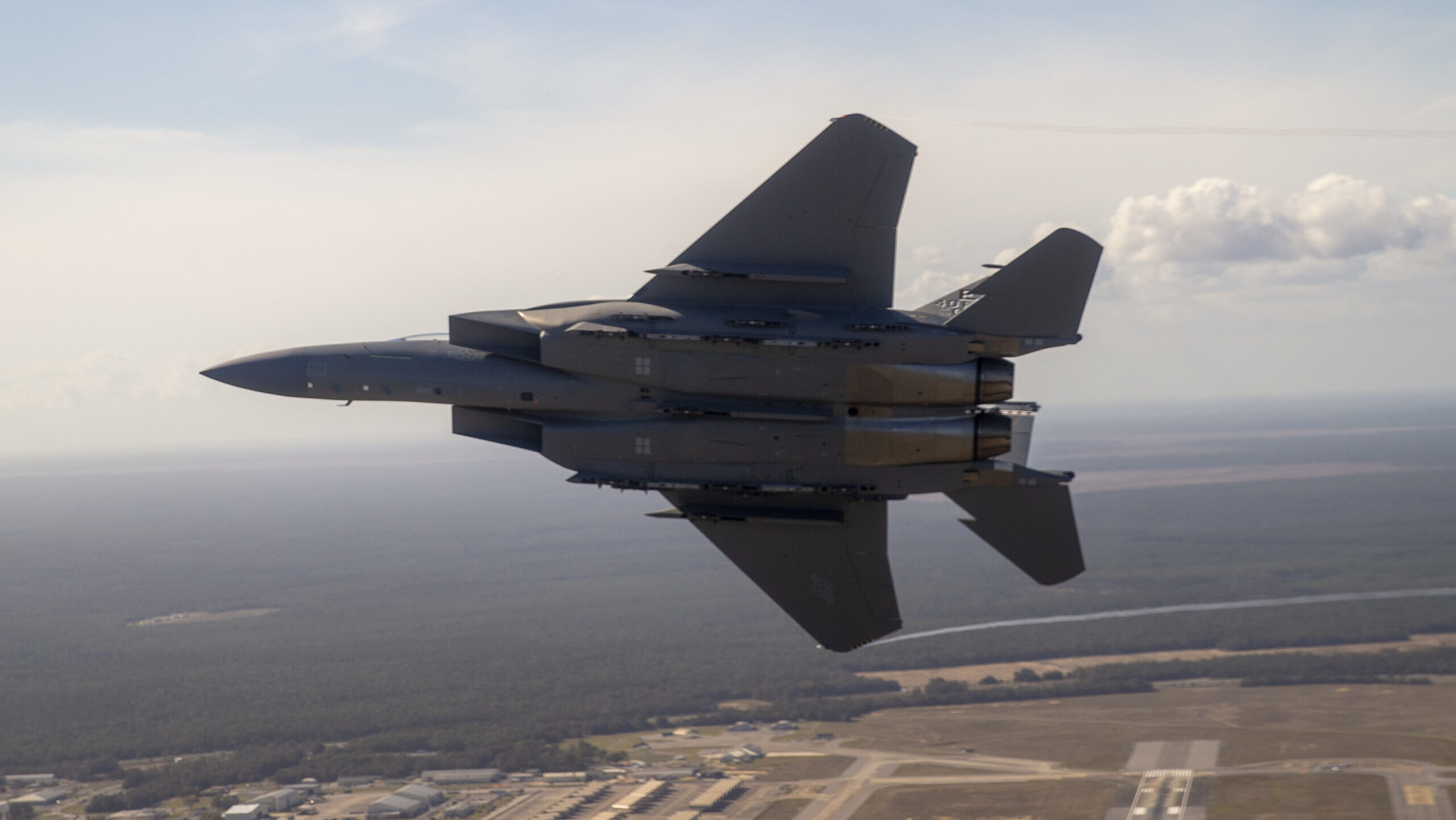Copyright Breaking Defense

WASHINGTON — A $5 billion charge on Boeing’s commercial 777X jetliner program stole the spotlight from the company’s defense segment during third quarter earnings today, resulting in little attention from Wall Street even as a strike at key fighter and weapon production lines threatens to spill into the fourth month. Boeing’s defense unit posted positive margins for the third quarter in a row despite an ongoing machinist strike at its St. Louis, Mo.-based locations, which overwhelmingly focus on its defense business. However, it logged a new $149 million reach forward loss on KC-46 tankers “largely due to higher production cost allocations resulting from the decision to slow 777X production plans,” according to regulatory filings for the quarter. “In St. Louis, we are executing our contingency plan as our IAM [International Association of Machinists and Aerospace Workers] represented workforce remains on strike,” Boeing CEO Kelly Ortberg told investors during an earnings call today. “While, of course, we prefer not to be in this position, the team continues to work in support of our customers. We are building JDAMs [Joint Direct Attack Munitions] without the IAM workforce at about the same production rate as before the work stoppage, and the team is progressing on our MQ-25 and T-7A development programs. We’ll continue to manage through this with focus on supporting our customers.” Later in the call, Boeing Chief Financial Officer Jay Malave said the defense unit’s operating margin of 1.7 percent in the third quarter included “immaterial impacts associated with the IAM work stoppage.” Financial filings for the company for the quarter stated that “our financial position, results of operations and cash flows could be materially impacted” if the strike continues for a prolonged period, but gave no other details. IAM International President Brian Bryant said in a statement after the call that Boeing’s contingency plan is “failing” because it cannot replicate the skill and experience of union workers. “If Boeing is serious about culture change and rebuilding its brand, it starts with respecting the people who make its success possible — not trying to sideline them,” he said. “Investors must also take into account Boeing’s continued failure to manage labor relations responsibly. The company’s refusal to engage in fair bargaining is not only hurting workers and national defense programs — it’s a risk to Boeing’s long-term stability, reputation, and credibility.” Analysts on the call did not ask further questions about the strike, which wasn’t a “needle mover” for investors the way the Boeing strike in Seattle was last year, said Richard Aboulafia, an aerospace analyst with AeroDynamic Advisory. “I just don’t think it’s a top of mind item for them. And a big part of that is because this strike doesn’t involve a bunch of lost revenue the way the commercial strike did, and it doesn’t involve a bunch of tied up inventory the way the commercial strike did,” he said. “You compare it with the commercial strike [where] you’ve got 30 or 40 [airplanes] per month, not one or two per month. And all of the stuff held in inventory in the commercial world is costing Boeing, whereas a lot of the stuff in inventory in the military world is paid for by the government anyway.” About 3,200 IAM members voted on Aug. 4 to reject Boeing’s contract offer and go on strike, marking the first such action from that local chapter since 1996. The strike has now lasted almost three months, during which time the union has twice rejected additional offers from Boeing, most recently this past Sunday. Meanwhile, Boeing has taken the unusual step of seeking out permanent replacement for its union workforce in St. Louis — an action beyond the usual practice of training managers and temporary workers to work the production lines. Dan Gillian, Boeing’s vice president of Air Dominance and senior executive at the St. Louis site, told Breaking Defense in September that the company had begun interviewing potential employees to take union jobs, though it had not yet made any hires. That appears set to change. Earlier this week, Boeing Defense CEO Steve Parker sent a letter to employees stating that the company is “accelerating our efforts to hire permanent replacement workers, which will likely result in some striking employees being replaced.” Parker added that Boeing will also expand the use of third-party workers in St. Louis and noted that the company is “welcoming back” union workers that cross the picket line. IAM responded that Parker’s letter was “misleading and disingenuous,” and noted that the union had filed a second unfair labor practice charge with the National Labor Relations Board. “Every American should be deeply concerned that this company is prolonging this strike and attempting to hire third-party workers without our experience to build some of the most advanced military jets and defense systems in the world. These are complex, precision-built products — and they cannot replace the skilled, experienced IAM members who have dedicated their careers to this work,” the union said in a statement on Tuesday. Also on Tuesday, a bipartisan group of 17 members of the House Armed Services Committee sent a letter to Ortberg urging Boeing to come back to the table with its union to negotiate a fair contract and end to the strike. “For more than 80 days, including with the assistance of federal mediation, both sides have yet to come to terms on a new contract. However, we are concerned by recent reports that Boeing Defense has inquired on hiring permanent replacements for striking workers in manufacturing roles,” said the group of lawmakers, which was led by Reps. Don Bacon of Nebraska, who leads HASC’s cyber subcommittee, and Donald Norcross of New Jersey, the top Democrat on its tactical air and land subcommittee. “Boeing Defense plays a vital role in safeguarding our national security and sustaining U.S. leadership on the global stage. That success is powered by a dedicated and highly skilled workforce, who every day, produce planes and other defense equipment that the United States government and our service members rely upon,” the lawmakers stated. “These workers are essential to the success of your company, and they deserve compensation that reflects their hard work and sacrifices.”



